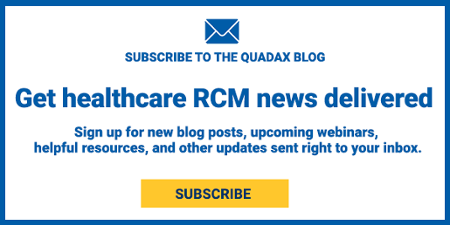Hospitals must be aware of operational issues that could negatively impact cash flow.
As COVID-19 continues to spread through the country, hospitals are scrambling to overcome unprecedented clinical and patient care disruptions contrasted by new demands. More than simply making adjustments to their financial projections, hospitals need to be aware of operational issues related to COVID-19 that could negatively impact cash flow and overall performance.
Here are five Operational Considerations outlined by Healthcare Financial Resources:
1) Coding COVID-19 Claims
Coders need to be educated in the use of the new COVID-19-related CPT and HCPCS codes for both private payer and government claims. And, stemming from the National Emergency declaration, Medicare has expanded payments for professional services via telehealth, virtual check-ins, and e-visits. Failure to code COVID-19-related care correctly will likely result in denials and payment delays, which may be more difficult and time-consuming to resolve in the current environment. Here’s more information on COVID-19 coding and reporting guidelines.
How Quadax Can Help
Quadax is more than a clearinghouse. Claims Management by Quadax allows for the creation of user-defined rules, including: provider-specific edits, auto-correct or suppress edits, and custom converts. Easily stop a claim; change, leave blank or move field data; auto correct to modify data based on a particular error; or suppress an error on a claim. Our Edits and Documentation Group (EDG) is dedicated to staying on top of the latest developments for submitting COVID-19 claims.
2) Monitor Clearinghouse or EDI Capabilities
It is important that hospitals monitor clearinghouse or bank electronic data interchange (EDI) capabilities to ensure 837 and 835 files containing claims and payment information continue to transit between payers and providers. Some hospitals have reported sporadic interruptions in their EDI services. Any substantial downtime that prevents timely claims submission or denial resolution could have a significant impact on collections.
How Quadax Can Help
Quadax maintains a Corrective and Preventative Action (CAPA) document that is distributed to impacted clients when a service is disrupted. This document outlines why an issue occurred, the timeline of the issue, and what measures Quadax has taken to resolve and prevent it from happening again. Since January 2019, Quadax has only experienced a few interruptions which were fixed in a very timely manner.
3) Monitor Claim Volumes
Hospital payer mix may shift rapidly as a growing number of individuals suddenly find themselves out of work. Organizations should monitor claims frequently to determine if Medicare and Medicaid volume is increasing and/ or commercial reimbursement is falling. Significant changes could have a major impact on budget projections.
How Quadax Can Help
Decision Intelligence by Quadax can provide the tools you need to determine if your Medicare and Medicaid volume is increasing and/or commercial reimbursement is declining.
4) Automatic Claim Resolution
Payer hold times for hospital staff working denials in many instances have increased due to limited staff availability at insurance company call centers. As a result, any automation processes that allow claims to be resolved without direct payer-provider interaction should be brought to bear.
How Quadax Can Help
Our workflows quickly route claims to each biller based on client-defined criteria, and when necessary, route claims internally to maintain an accurate audit trail to reduce the need to communicate through an external environment. Workflow automation between Claims Management and EHRs/billing applications result in streamlined processes that improve clean claim rates, reduce administrative costs and provide the insight and control to recover expected reimbursement with speed and efficiency.
5) Automatic Claim Status
If they haven’t done so already, hospitals should work with payers to enable the receipt of 276/277 claim status files from clearinghouses to ensure up-to-date information regarding the status of unpaid claims. Payer portals should also be used to monitor and track unpaid claims.
How Quadax Can Help
Advanced Claim Status™ (ACS™) by Quadax automates costly, manual and unnecessary follow-up tasks related to the status of claims as they move through the adjudication process. Using client-defined business rules, the Advanced Claim Status engine will query a claim’s status by polling the payer’s web portal, using advanced screen-scraping technology to ensure the most up-to-date and actionable payer responses. Based on the responses, claims that require immediate action can be routed to the responsible party to accelerate claim follow-up. Comment records are delivered back to the EHR/billing application sooner, so staff can work smarter. We can also integrate with EHRs, including Epic.
We work hard to provide the perfect blend of sophisticated technology with reliable, expert, personal support. Let’s take on the revenue cycle together!


